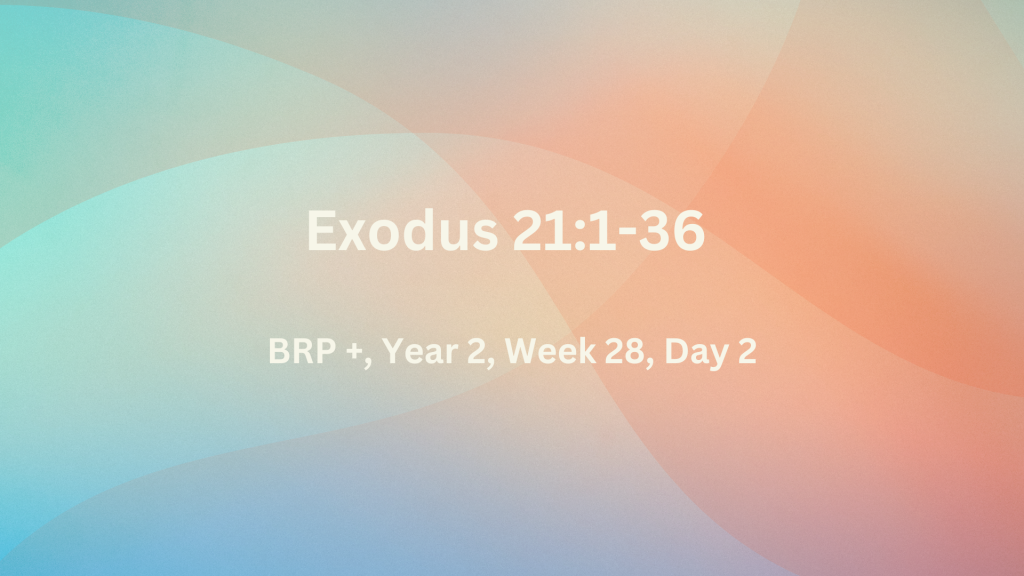Exodus 21:1-36
Q.1. How long could a person be enslaved in Israel? How were slaves to be treated? Could masters do as they pleased? How are we to understand the rules relating to slavery? –(Exo.21:1-11)
God had delivered the people of Israel from slavery in Egypt, so they could be free. However – If you buy a Hebrew slave, he shall serve for six years; but on the seventh he shall go out as a free man without payment (Exo.21:2). A person who was a slave left as he had come, either alone, or with the wife who had joined him in slavery (Exo.21:3). However, he could not take a wife provided by his master, or any children born to him while in slavery (Exo.21:4). He could decide – 5 ‘I love my master, my wife and my children; I will not go out as a free man,’ 6 then his master shall bring him to God, then he shall bring him to the door or the doorpost. And his master shall pierce his ear with an awl; and he shall serve him permanently (Exo.21:5-6). Unlike his master, a freed slave would have nothing to provide for his wife and children upon release. A woman treated as a concubine by the master, or by the master’s son, could not be dismissed or sold to foreigners. Regardless of the changed marital circumstances, the concubine was not to be denied daily food, clothing, or her conjugal rights (Exo.21:7-10). Failing that – she shall go out for nothing, without payment of money (Exo.21:11).
Q.2. Were all breaches of the Law treated the same? To what offences did the death penalty apply? When was restitution required? What basic principle was to guide judges? – (Exo.21:12-25)
There was a distinction made in the law, between premeditated murder, carelessness, and manslaughter (Exo.21:12-14). The death penalty applied to murder, kidnapping, and striking or cursing their father or mother (Exo.21:15-17). Judges were appointed to punish or award damages for a variety of injuries and offences (Exo.21:18-22). The fundamental principle that was a guide to the judges and elders in determining a penalty, was a – life for life, 24 eye for eye, tooth for tooth, hand for hand, foot for foot, 25 burn for burn, wound for wound, bruise for bruise (Exo.21:23-25). The judicial system was underpinned by equity. This would minimize reprisals amongst the people.
Q.3. Under what circumstances was a slave freed? What responsibility did an owner bear for the damage done by an animal? How was the loss incurred by an animal paid for? – Exo.21:26-36)
The law stipulated that male and female slaves were to be set free, if a master mistreated his slave (Exo.21:26-27). There were substantial penalties for not acting responsibly with their animals, or not managing the land as God had directed. A distinction was made for injuries and damage caused by accidents and carelessness. Significant restitution applied, from the payment of a ransom to a substantial fee, in order to compensate the victim (Exo.21:28-36). Israelites had to take responsibility for their slaves and animals, or there would be significant costs to the offending parties.

